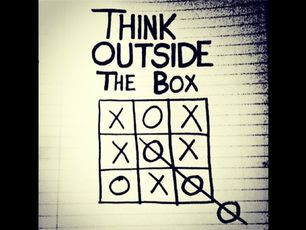Menu
It's time to chase Innovation instead of reacting to the status quo.
-Taylor Williams
 Photo via Unslpash on Pixabay Photo via Unslpash on Pixabay As we are coming to the end of the school year, it seems that everything starts to grow exponentially. What was once that small pile of papers on the side of my desk has taken like the rabbits behind our house and multiplied like well... rabbits. The pile keeps growing, the emails continue to bing and buzz, the report cards are on the horizon, the observation reflection is due, not to mention any projects/homework that your own kids are stressing about at home. For most of us as educators this is the final leg, the last 100 feet of the hike before you reach the summit... do you have enough to make it? Like Chip and Dale before the great winter, we teachers are trying to pick and pull together the final morsels of time to complete the year on a high note. With the final weeks coming up, here are a few tips to help save (or squirrel) the time we do have. 1. Using Google Forms as a Rubric Photo Cred: Pixabay Photo Cred: Pixabay Alice Keeler shares an awesome post about how to create a rubric using Google Forms. I have done this for my final class project and it has sped up my grading significantly. Now instead of worrying about 95 different paper rubrics, all of my grading goes into one simple database created in Google Forms and stored in Google Sheets. With this I am able then to transfer results into my gradebook with ease ( And no paper!). I have also found I can move through student presentations faster because I am continuing to use the same form over and over again without having to get my desk re-organized and settled from the previous presentation. 2. Google Keep to Keep Your Checklist with you All the time.I wrote in a previous post about the advantages of Google Keep. I believe this is a great time saver because I am no longer worrying about where my checklist is, how many I might have, or what I have to do next. The app is simple, it's with me on my desktop, phone or tablet. Easy to access, easy to edit and change. Simply saving time looking for the checklist so that the focus can be completing the checklist! 3. Find your Flow Photo cred: Pixabay Photo cred: Pixabay Cognitive flow or Flow Theory was first described by Mihalyi Csikszentmihalyi. Without going into a lot of detail, Flow Theory basically describes finding your optimal experience through activities that you are participating. Whether it be sports, reading, grading, gaming, or other activities (Netflix!), flow is experienced and can be described as moments where time disappears and all of one's energy is focused on the task at hand. That being said, if you have ever experienced flow as a teacher, you have an idea of what elements encourage you to enter into that state. If you can re-enter yourself into a "flow" while trying to grade, plan, or report, you will be able to work at your most favorable level and complete more than if you are getting distracted because of "how much" you have to do. How to create "flow" experiences?
4. Finish the Easy Tasks FirstThere is a reason that my grandma would always say "take baby steps" or "start small". Or maybe that was What About Bob? As learners we are meant to build ourselves up. We don't know everything at once, we need to learn. We learn the alphabet before we learn to spell. We learn to count before we learn statistics. Taking those small tasks and getting them out of the way does two things:
5. Pre-Plan for Next Year You are now reading over number 5 and you are thinking "WHAT! HOW IS THIS SUPPOSED TO SAVE ME TIME NOW!" If you have the ability to get to a point where you can plan for the following school year, you will be making a huge deposit in the time bank. If you have your first Unit or two already planned out for the fall, you have the opportunity to use that time in other ways. As an EdTech advocate, I would strongly challenge you to preplan your unit and then see how you could modify it. Does your school have technology you have always wanted to use, but have never had the "time"? Preplan your unit and then see how that tech could enhance the learning of your students. Try a new app or website with them. Look into your classroom management and beginning of the year presentations. What could you do to build a greater rapport and relationship with your students? What could you do with that time that would help you learn about how your students learn? The point is time is limited, (duh!) and its our job to use it to the best of our abilities. Stretch yourself, make a mistake, think outside your traditional "this is how I do it" mentality and humble yourself to try something new. It will probably fail, but you will learn from it...cause that's what we do! Best of luck on this final stretch! Summer is almost here!
0 Comments
Leave a Reply. |
About TaylorTaylor currently serves as a Coordinator of Innovative Learning for a mid-sized school district in Texas. He is a speaker, writer, and coach for all who are in conflict with the status quo. Archives
March 2023
|



